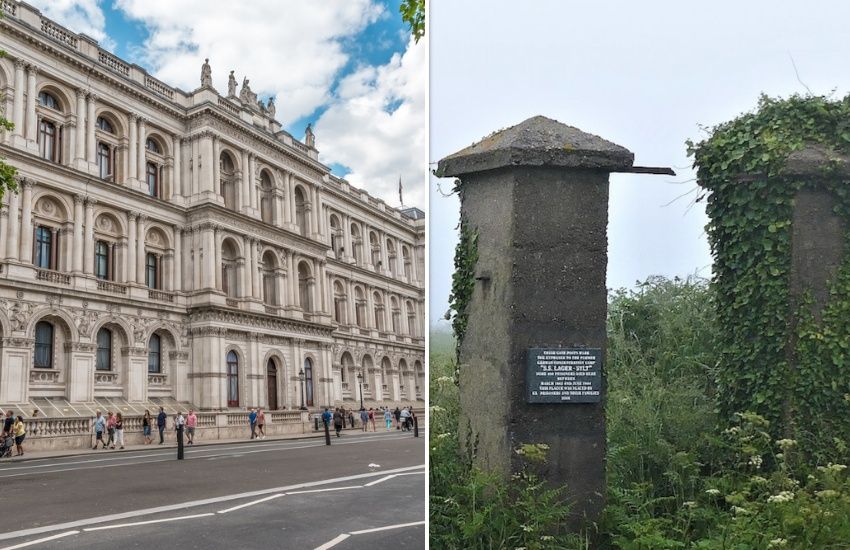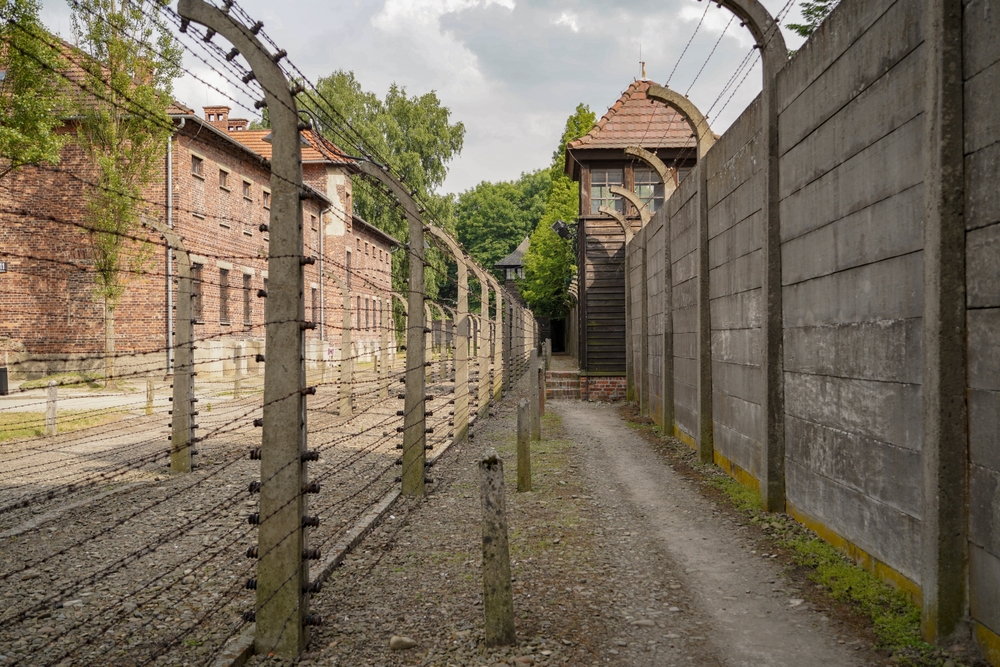


An unusual prisoner swap with the Soviet Union involving what is now known as the Great Escape and a reinterpretation of an international justice treaty by the British government are among reasons found in a new report as to why very few Nazis faced justice for the atrocities committed in Alderney.
The Expert Review into the Alderney Occupation has for the first time revealed why there was an absence of justice for the victims of the Nazis in the island, despite clear evidence of war crimes and other criminal behaviour.
The lack of trials was also a factor which for many decades concealed the true number of deaths – now put at between 600 and 1,000 by the academic researchers – which led to varied theories minimising or exaggerating the death toll.
Lord Pickles, the UK envoy for post Holocaust issues who led the report, added that much of the information used to bring the truth to light had been “hidden in plain sight” in archives around the world, and there’s damning conclusions for successive British governments for this aberration of justice.
“The Nazis were assiduous record keepers. While much was destroyed, the team discovered duplicates existing in other countries and archives. Many murdered victims of the Nazis have no certain burial site, some are in places yet to be found, but we now have many of their names,” Lord Pickles said.
And while it's noted that there was frustration among British officials that the perpetrators didn’t stand in a dock – and were instead able to return home and walk free – there's mismatch.
“The Soviet Union did not follow up the Alderney case and were thus responsible for the failure to bring the perpetrators to justice, causing much anger among members of the British government,” the press statement released at midnight read.
But the contents of the report are far more critical of the British government.
Professor Anthony Glees was brought into the near year-long review after it became clear that the lack of war crimes trials pursued after the war ended should be a question that’s addressed.
Lord Pickles said he “found not one but a succession of cover-ups", and the fact many involved in the atrocities were allowed to walk free is “a stain on the reputations of successive British governments”.

Pictured: The report has also struck down theories that Alderney represented a "mini-Auschwitz".
It was discovered that the UK Foreign Office decided to reinterpret the terms of the Moscow Declaration of 1943, which directed that Nazi criminals should be tried in the jurisdictions where they had committed their crimes, unless they were deemed “major war criminals” who were instead to be tried internationally at Nuremberg.
An internal Foreign Office document from July 1945 incorrectly stated that the only victims of war crimes in Alderney had been Russians labourers and as such they should be handed over to the Soviet Union.
This was to achieve an exchange of German prisoners, captured by the Soviets, who had murdered Allied troops involved in what is now known as the Great Escape from Stalag Luft III in Poland.
In late July and early August of that year the Foreign Office decided to expand its application of the Moscow Declaration from the territories where crimes were committed to the nationalities of the victims of said crimes – the majority of victims in Alderney being Russians or from territories then within the USSR.
The British were successful in securing the German prisoners for trial, but the Soviets did not proceed with trials in respect of Alderney, which Professor Glees noted was a cause of frustration among officials.
Professor Glees said:“The conclusion that can be drawn from this is that the British authorities wished to get their hands on the Stalag Luft III perpetrators in Soviet hands, where the British and American airmen were the victims. And they believed this could be achieved by passing to the USSR the Alderney German war criminals whose victims were Soviet citizens.
“It is a fact that had Britain tried the perpetrators itself, justice would have served and this did not happen.”
“What was ‘covered up’, it should be emphasised, was not a lack of fervour on the part of the British to convict Nazi war criminals (indeed it was believed the Soviets would be far more severe in their punishment of the war criminals than the British). Rather it was that the case had been handed over almost at once to the USSR and that the USSR did nothing with it. This has been hidden from public view until now.
“The USSR accepted the case but, as far as we can tell, proceeded - much to Britain’s disapproval - to do nothing with the evidence. It followed that with one or two exceptions, all of those who had cruelly and systematically tortured, and often murdered their victims, in a British Crown Dependency, or those who had been the commanding officers of these men, could escape trial.
While British officials were concerned that the case was never pursued, by 1947 interest in the matter appeared to fall off a cliff.
“Throughout 1945 and 1946 they sought to persuade the USSR to get on with trying them, even considering trying them themselves in the British Zone of Germany, a course favoured by the Attorney General Sir Hartley Shawcross and the Foreign Secretary, Ernest Bevin. But by 1947 the evidence shows Britain believed it had absolved itself of further responsibilities, even to the extent of denying (to France) that it had materials relating to what had happened in Alderney.
“While it is intriguing that the fate of the Nazi murderers on Alderney was intimately linked to the PoW breakout at Stalag Luft III (The Great Escape), they should have faced British justice,” Lord Pickles concluded.
Comments
Comments on this story express the views of the commentator only, not Bailiwick Publishing. We are unable to guarantee the accuracy of any of those comments.